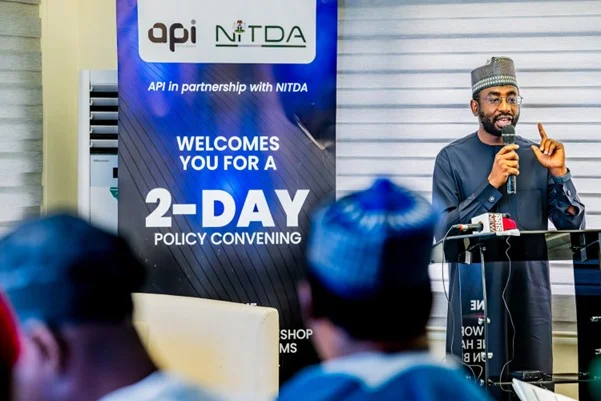The Federal Government has unveiled significant plans to accelerate the nation’s digital transformation. An investment of N12 billion is earmarked for research projects focused on the digital economy. This strategy aims to ensure that the country fully harnesses the benefits of digital growth and governance.
Bosun Tijani, the Minister of Communications and Digital Economy, made this announcement in Abuja on Tuesday. He spoke at the opening of the 18th International Conference on Theory and Practices of Electronic Governance (ICEGOV). The event’s theme was ‘Shaping the Future of Digital Governance Through Cooperation, Innovation and Inclusion.’
Funding Three Key Research Clusters
Tijani stated that platforms like ICEGOV offer nations a chance to explore emerging technologies. This exploration must then be aligned with effective policies that address core societal needs. Nigeria’s participation in the 2024 ICEGOV conference secured international confidence, allowing the country to host the 2025 event.
Immediately following last year’s conference, the government funded over 55 research projects. The Minister confirmed the fresh commitment of funds:
“At the minute, we are putting together about N12 billion to fund further research projects that are focused on the digital economy.”
The funding will establish three distinct research clusters, each comprising six universities:
- Artificial Intelligence (AI): One cluster will focus entirely on AI research.
- Connectivity: Another cluster will focus on bridging the nation’s biggest issue internet connectivity.
- Digital Literacy: The third cluster will concentrate on digital skills and literacy, essential given Nigeria’s large population.
The Imperative for Digital Governance
Digital technologies have become central to modern existence. The Minister stressed that any society failing to embrace them risks being left behind developmentally.
He emphasized that these technologies should not be viewed merely as economic enablers. Instead, they must be treated as powerful instruments capable of reshaping and governing modern societies.
Similarly, the Chair of the ICEGOV Steering Committee, Elsa Estevez, noted that Artificial Intelligence demands stronger global collaboration. This cooperation must span countries, institutions, and all levels of government to address the technology’s attendant risks.
Estevez noted that society is profoundly affected by digitally driven innovations. She called for innovations to be human-centered and contribute to better societies. She added that securing the public digital space hinges on strong regulation, education, and public awareness.
Integrating Digital Literacy in Education
Malam Kashifu Inuwa, Director-General of the National Information Technology Development Agency (NITDA), disclosed a major educational plan. The Federal Government intends to integrate digital literacy into the national school curriculum by 2026.
Inuwa explained the move is designed to align the technological growth of Nigeria’s youthful population with the government’s digital development initiatives. He stated that the government has secured approval to integrate digital literacy and skills into formal education by next year.
He also confirmed that measures are being implemented to ensure that public servants acquire digital literacy skills. This push is expected to enhance efficiency and significantly improve service delivery across the public sector. “We are running an evidence-based government…If you don’t have data, it’s like you’re flying blind,” Inuwa added.
Legal Framework for the Digital Economy
In an effort to establish a solid legal foundation, the National Digital Economy Bill is scheduled to return to the National Assembly soon. The bill, first introduced in 2024, aims to create a robust legal framework.
It covers crucial areas such as data protection, cybersecurity, digital infrastructure, and electronic transactions, ensuring safe and inclusive participation in the nation’s digital transformation.
________________________
ALSO READ: Malian Junta Head Admits Crisis: Deadly Fuel Blockade Threatens Stability






